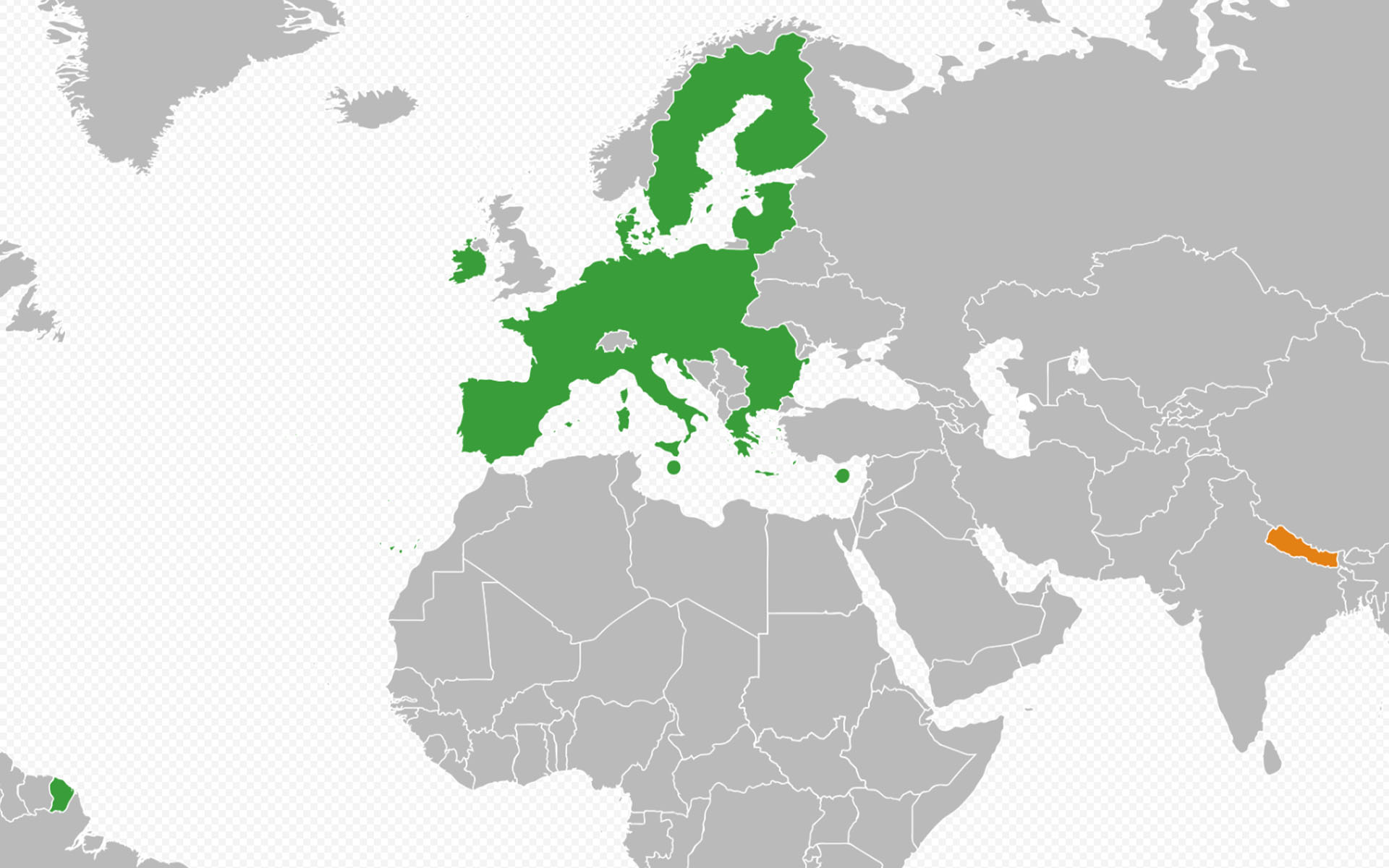
The world is in geopolitical flux. The shifting global order is in a transitional phase, with old certainties giving way to new realignments each day. The international landscape is increasingly marked by volatility and conflict, giving rise to unpredictable challenges in global relations. In this context, enduring friendships—like the one between Nepal and the European Union—become not just important, but essential. Nepal and the EU must work together to overcome these difficult times and move toward a better future for their people.
Nepal and the EU celebrated the golden jubilee of their relations last year. Built on five decades of trust and cooperation, this partnership has spanned multiple sectors—economic development, technology, climate change, democracy, human rights, transparency, and accountability. The EU also supported Nepal’s peace process through the Nepal Peace Trust Fund (NPTF) and continues to closely follow the transitional justice process. Since Nepal adopted its federal constitution in 2015, the EU has played an instrumental role in supporting its implementation.
This partnership has matured alongside the EU’s own transformation from the European Economic Community, a purely economic body, into a cohesive global entity in 1993. Today, Nepal’s engagement with the EU is multi-layered. Kathmandu and Brussels interact bilaterally, regionally, and multilaterally. Since 2007, the EU has held observer status in SAARC, of which Nepal is a member. Meanwhile, the growing Nepali diaspora in Europe has added a human dimension to this framework, strengthening people-to-people ties.
The EU first opened its Technical Office in Kathmandu in 1992, followed by Nepal establishing its embassy in Brussels the same year. The EU Delegation in Nepal was formally established in 2002 and upgraded to ambassadorial level in 2009.
From the outset, Nepal-EU ties have been based on mutual trust and cooperation, extending across economic, trade, humanitarian, and development sectors. The EU has been Nepal’s development partner since 1973, and in 1974, Nepal and the then-European Community established formal diplomatic relations.
While this foundation of high-level engagement is strong, the current global moment demands even more frequent and strategic dialogue. The EU’s Global Gateway initiative, launched in 2021, aims to mobilize €300 billion worldwide by 2027 to support digital, energy, education, and health infrastructure. In Nepal, the initiative supports climate-resilient growth, education, and green energy. For Nepal, fully leveraging this opportunity is essential. At the same time, Europe—facing its own geopolitical challenges—stands to benefit by fostering dependable partnerships around the world.
Of the EU’s 27 member states, only three—Finland, France, and Germany—currently maintain embassies in Nepal alongside the EU Delegation in Kathmandu. Denmark also maintained an embassy until its closure in 2017. The EU mission in Nepal coordinates with resident embassies and Honorary Consuls’ offices in Kathmandu to strengthen relations. On the other side, Nepal has eight resident missions in Europe, including two Permanent Missions to the UN in Vienna and Geneva. Other embassies are located in Brussels (which also serves as the mission to the EU), Copenhagen, Paris, Berlin, Madrid, and Lisbon. Stronger collaboration between these missions and host governments will be vital in enhancing bilateral ties in the future.
In these critical times, the relationship between Nepal and the EU must evolve from one of friendly cooperation to a truly strategic partnership. By aligning priorities and deepening collaboration, they can advance mutual interests while building a more secure and prosperous future for both.